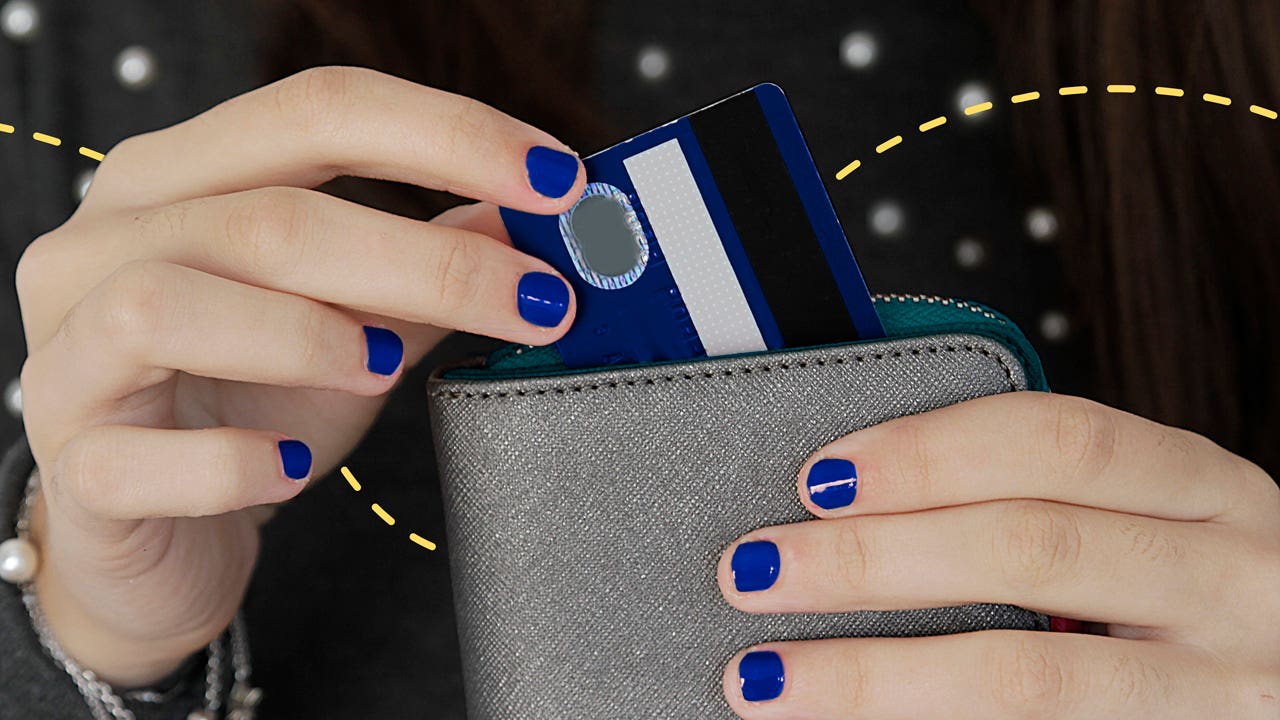7 credit card tips for beginners

Key takeaways
- Actively using a credit card responsibly can help improve your credit score over time.
- Using your credit card like a debit card and only charging what you can afford to pay in cash can help prevent long-term debt.
- Consider keeping your oldest credit card open to maintain a longer credit history and lower credit utilization ratio.
Having a credit card is a big responsibility, and it’s one that shouldn’t be taken lightly. A credit card can help you build your credit score so you’ll have good credit when you need it, but credit cards can also lead to long-term debt and credit score damage that can take years to fix.
With that in mind, it’s smart to have a plan in place before you begin using your new credit card. This plan should help you maximize the benefits of credit without putting your finances at risk.
If you’re a new credit card user and want to use credit as a tool to build the life you want, read on for our seven credit card tips for new users.
1. Set up autopay
Building credit with a credit card is easier when you know about the factors that make up your credit score, the most important of which is payment history. This factor makes up more than one-third of your FICO credit score. As a result, paying your bills late (or on time) will have a significant impact on whether a credit card hurts or helps your credit score in the long run.
To avoid late payments, set up autopay on your card for at least the minimum monthly payment. By setting up autopay, your credit card bill will be automatically paid with funds from a connected bank account.
Keep in mind: You can still set up autopay for the minimum payment even if you plan to pay your credit card bill in full each month. In this case, you can use autopay as a backup in case you accidentally forget to pay your bill before your card’s due date.
2. Use your credit card like a debit card
Remember that credit cards are a poor option if you need to borrow money or carry a balance. After all, the average credit card interest rate is currently teetering over 20 percent.
If you wind up with a balance of $5,000 on a credit card with a 20 percent APR and make a payment of $150 each month, you will be stuck forking over $2,359 in interest payments as you pay your debt off over 50 months.
Input your own numbers to Bankrate’s minimum payment calculator.
Of course, it’s best to avoid paying hundreds or thousands of dollars in interest. That’s why your best bet with a credit card is to use it like a debit card, or only charge purchases you actually have the cash in the bank to pay for. Doing so can help you enjoy the perks and convenience of credit without racking up long-term debt and paying more for everything you buy along the way.
To successfully use a credit card like a debit card, you should only use your card for planned purchases and in conjunction with a monthly budget or spending plan. Most credit card issuers also make it easy to pay your balance off several times per month through your online account management page, which can help you keep your balance in check over time.
3. Only carry a balance during your card’s intro APR period
If you do have a large expense coming up and need to split up payments over a few months, you should sign up for a card that offers an introductory rate on purchases. Many credit cards offer an intro or 0 percent APR for items you buy, balance transfers or both for more than a year.
Popular examples include Discover it® Cash Back (0 percent intro APR for 15 months on purchases and balance transfers, then an 17.49% - 26.49% Variable APR will apply) and the Wells Fargo Reflect® Card (0 percent APR for 21 months on balance transfers made in the first 120 days and on purchases then a 17.49%, 23.99%, or 28.24% Variable APR), but there are plenty of other cards in this niche.
Carrying a balance during your card’s 0 percent APR period can make it possible to earn rewards and pay down debt without any interest, but you should make sure to pay off your debt before your intro period ends. If you wind up with debt that lasts beyond your card’s introductory period, your balance will start accruing interest at your card’s variable APR.
4. Keep your credit utilization below 30 percent
Another factor to keep in mind as you build credit is your credit utilization rate. After all, your credit utilization ratio — or the amount of money you owe in relation to your credit limits — is the second most important factor that makes up your FICO credit score.
To avoid a hit on your credit score due to your utilization rate, most experts suggest keeping your utilization below 10 percent of your available credit, or 30 percent at most.
This would mean keeping a balance below $1,000 (or $3,000 at maximum) for each $10,000 in available credit you have, or below $500 (or $1,500 at maximum) for each $5,000 in available credit you have.
According to Experian, one of the three major credit bureaus, “If you’re focused on having excellent credit scores, a credit utilization ratio in the single digits is best.”
5. Know when to upgrade
When you start looking for a first credit card, you will probably wind up with a secured credit card, a student credit card or a credit card for fair credit. These types of credit cards are easier to qualify for, and they can even be available to individuals with a low credit score or no credit history.
Either way, you should track your credit score and know when it’s time to upgrade. Generally, you may qualify for a better credit card when your credit score gets into the “good credit” range, which is considered to be a FICO score of 670 or above. A credit score of 720 or higher can help you get approved for one of the best rewards credit cards on the market.
Some issuers will even upgrade your card after your credit improves. In this case, you can keep the same account number but trade in your starter card for one with better rewards and perks. If you’re curious about this option, call your issuer and ask.
6. Define your rewards strategy
You should have a plan in place to earn credit card rewards without putting your financial health in jeopardy. For example, earn rewards by using your credit card for as many purchases as you can, but only when you have the cash in the bank to pay your credit card bill in full each month.
In addition to crafting a rewards plan that helps you stay out of debt, you’ll also want to have a card that offers the type of rewards you want to earn. This could be a cash back credit card that lets you earn rewards that are good for statement credits or gift cards, but it could also be a card that earns travel rewards.
Also, remember that you don’t have to settle for a credit card that doesn’t offer rewards. Many credit cards for fair credit offer basic cash back on your spending, including the Capital One QuicksilverOne Cash Rewards Credit Card and Upgrade Cash Rewards Visa®.
7. Reconsider canceling your card
Lastly, be sure to pause before canceling a credit card. Say you apply for a starter card and use it responsibly for a year or two, build up your credit and then apply for a more premium credit card. Your starter card may start to gather dust, and you could start to wonder whether canceling the card is a good idea.
Our advice for beginner credit card users? Keep the card open. Closing a credit card can have a negative impact on your credit score, as doing so will decrease the length of your credit history and increase your credit utilization ratio. Plus, if your starter card charges an annual fee, you can request to downgrade your card to a no-annual-fee option with the issuer, which will have no effect on your credit score.
The bottom line
Simply owning a credit card won’t get you good credit — it’s knowing how to use a credit card that will help or harm your credit, including whether you pay your bills on time and how much debt you wind up carrying.
To get the most out of your new card, we suggest using it carefully and only for purchases you can afford to pay for in cash. Keep your credit utilization in check while you earn rewards and pay your bill on time, and you should see your credit score increase over time.
Why we ask for feedback Your feedback helps us improve our content and services. It takes less than a minute to complete.
Your responses are anonymous and will only be used for improving our website.




